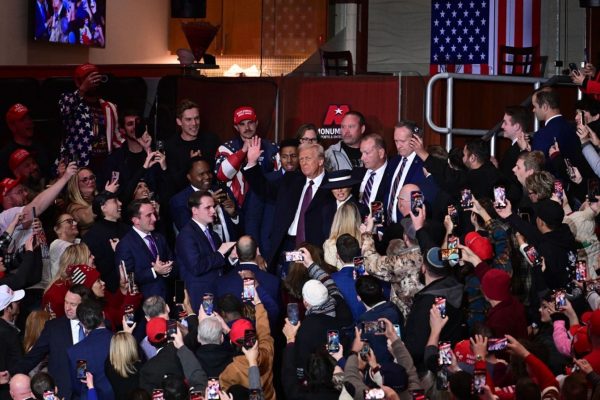The Social Ranking System of Beijing: Freedom vs Order
There’s no doubt that China is one of the most nationalistic countries in the world. However, they’ve decided to take this title a step further for better or for worse with their “Social Credit Ranking System.”
This “big brother”-esque program would place the citizens of Beijing upon a social ladder with an individual ranking. This ranking could be decided by any number of factors — criminal history, smoking on trains, littering — that would effectively halt those negatively affecting their community from progressing in society through by limiting such things as travel and other programs.
To many, this situation appears too much like an Orwellian Nightmare. With the ranking of citizens based upon government surveillance and data gathered through government review of the backgrounds of each citizen, the government overreach into the lives of Beijing’s citizens seems too excessive.
Not to mention the government’s limiting of opportunities of lowly ranked citizens.
By preventing these citizens from gaining access to certain “privileges,” many people feel that the liberties of Beijing’s citizens are being excessively curbed in the name of positive reform. While most citizens would agree that they want productive neighbors occupying their city, those who are against this program believe that this course of actions is simply too radical.
To those who support this system, it’s seen as a readily available means of providing incentive for good behavior. To them, the order and societal benefits of this program outweigh the downsides of decreased liberty. In their eyes, every citizen will now be rightfully held accountable for their “worth” or contribution to society.
By rewarding good behaviors, proponents of the ranking system believe that the citizens of Beijing will work harder and have a more positive impact on society.
This is due to the display of a tangible reward or penalty for such beneficial actions. Tangible is the key word, for there are many reasons to strive for a higher social ranking beyond a mere number. According to journalist Catie Keck, the effects of these rankings will affect everyday life “from an individual’s access to public services, to their ability to start a business or find a job.”
In other words, there is certainly an incentive to be more productive.
While both the arguments of supporters and non-supporters are rational, there is a certain layer of this topic that boils down to personal philosophy. Which do you value more: liberty or order?
This Social Contract has guided the thoughts of every major political discussion in the past 250 years, and elements of this question are painfully clear when examining the Social Credit System. The system would surely bolster more order by providing incentive to positively impact the country, but it would strip away the personal liberties of the citizens by limiting the options of those near the bottom of the ranking.
Whether beneficial or negative, this system is certainly radical, and it’s sure to cause major changes in the areas that it affects. To further empower this, the government of Beijing is pushing full-throttle for the initiative. Knowing this, we’ll certainly see the effects – whatever they may be-of the Social Ranking System sooner rather than later



